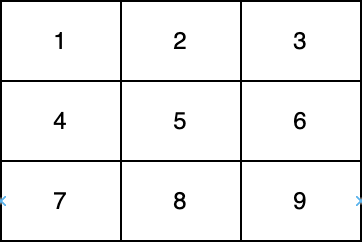
g2601_2700.s2614_prime_in_diagonal.readme.md Maven / Gradle / Ivy
Go to download
Show more of this group Show more artifacts with this name
Show all versions of leetcode-in-java Show documentation
Show all versions of leetcode-in-java Show documentation
Java-based LeetCode algorithm problem solutions, regularly updated
The newest version!
2614\. Prime In Diagonal
Easy
You are given a 0-indexed two-dimensional integer array `nums`.
Return _the largest **prime** number that lies on at least one of the **diagonals** of_ `nums`. In case, no prime is present on any of the diagonals, return _0._
Note that:
* An integer is **prime** if it is greater than `1` and has no positive integer divisors other than `1` and itself.
* An integer `val` is on one of the **diagonals** of `nums` if there exists an integer `i` for which `nums[i][i] = val` or an `i` for which `nums[i][nums.length - i - 1] = val`.

In the above diagram, one diagonal is **[1,5,9]** and another diagonal is **[3,5,7]**.
**Example 1:**
**Input:** nums = [[1,2,3],[5,6,7],[9,10,11]]
**Output:** 11
**Explanation:** The numbers 1, 3, 6, 9, and 11 are the only numbers present on at least one of the diagonals. Since 11 is the largest prime, we return 11.
**Example 2:**
**Input:** nums = [[1,2,3],[5,17,7],[9,11,10]]
**Output:** 17
**Explanation:** The numbers 1, 3, 9, 10, and 17 are all present on at least one of the diagonals. 17 is the largest prime, so we return 17.
**Constraints:**
* `1 <= nums.length <= 300`
* nums.length == numsi.length
* 1 <= nums[i][j] <= 4*106© 2015 - 2024 Weber Informatics LLC | Privacy Policy